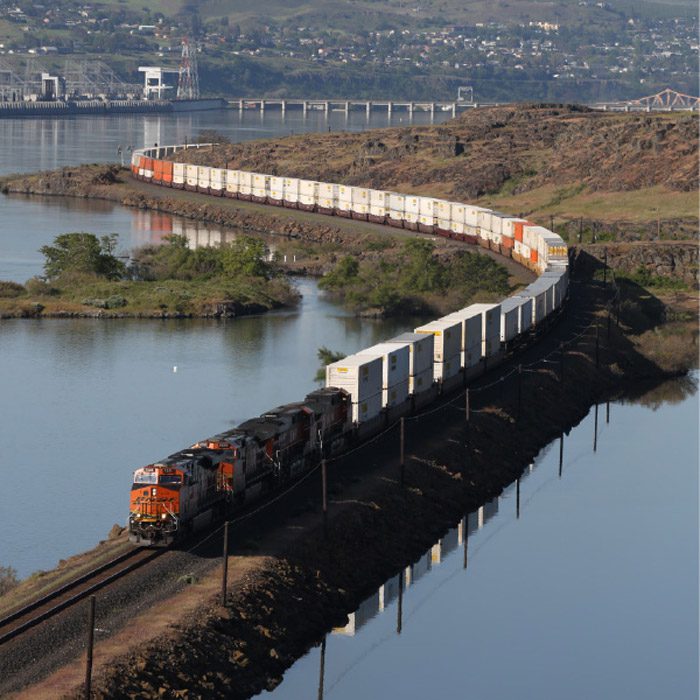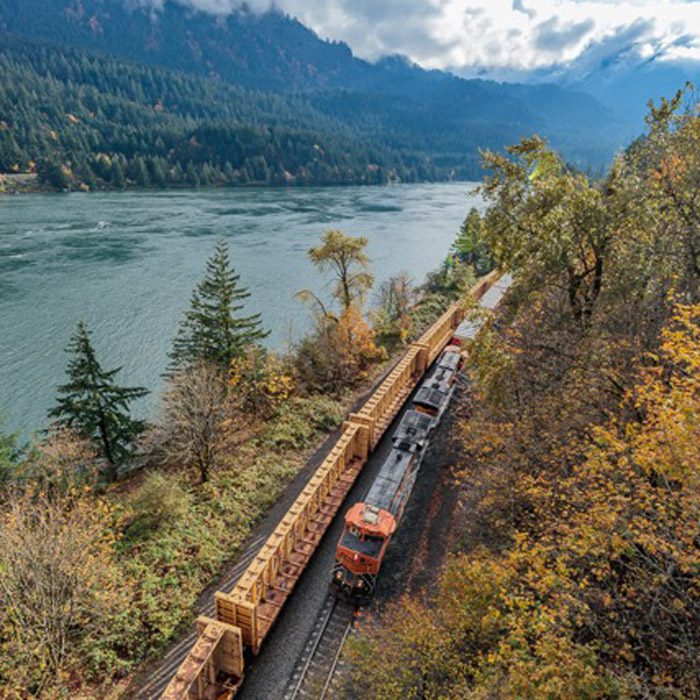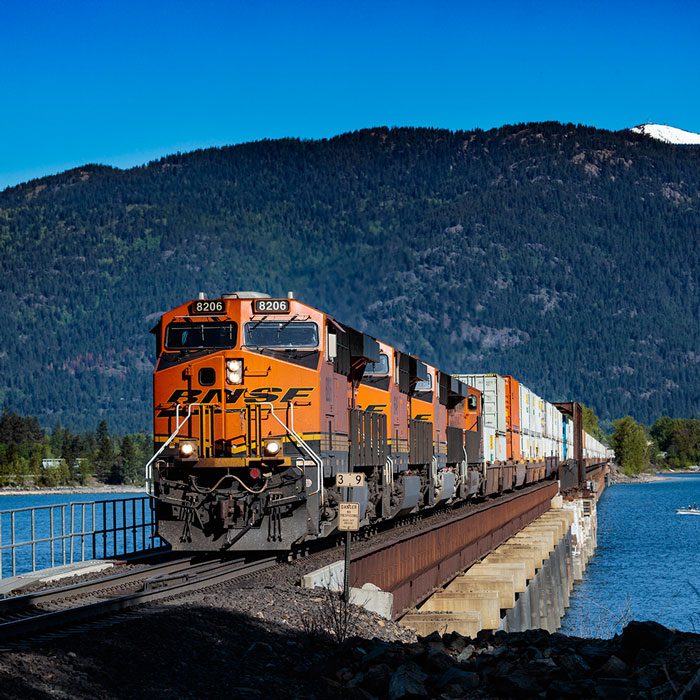The following commentary in the Everett Daily Herald comes from Lloyd Flem, executive director of All Aboard Washington, and Jared Wootton, general manager for the northern division of BNSF Railway:
Protest that blocked tracks held up passengers, crews, freight
Washington is known for many things: its natural beauty, high-tech innovation and deep roots in international trade. Our state is also home to an extensive rail system that not only moves all of the things we use every day, but also provides crucial transportation for millions of people.
Rail is vital to Washington. It is the backbone for our state’s trade-dependent economy; freight rail provides $28.5 billion each year in positive economic impact to Washington state. Our rail system also moves more than 2.8 million people annually on passenger trains operated by Sound Transit and Amtrak. Passenger trains are an essential and popular transportation choice. Both freight and passenger rail reduce congestion on our roads and highways and are the most environmentally friendly ways to move millions of people and tons of goods.
Also, travel by train is inherently safe. Federal safety data show American passenger trains are 17 times safer, per million passenger miles, than are private motor vehicles. Any behavior or action that negatively affects or discourages passenger rail service forces more motor vehicle traffic onto congested and less-safe streets and highways.
Given the vast importance of rail to our society as a whole, it is troubling that those opposed to fossil fuels target railroads. During the weekend of Aug. 27, protesters trespassed on Burlington Northern Santa Fe property in Bellingham. This not only put themselves in grave danger, but their actions impeded passenger and freight rail operations. Despite what was reported, the impact went beyond blocking a single coal train. In fact, during the 11-hour service interruption, five passenger trains were stopped, including four Amtrak trains and a Rocky Mountaineer excursion train.
There was apparently no thought given to the impact this had on the more than 950 passengers who were on those trains, or their crews. This protest shut down rail operations for nearly half a day. Imagine the deep frustration these passengers felt as they missed meetings and appointments, and waited for hours to get home, start a vacation, or go see loved ones.
State and federal taxpayers, and passengers — through their fares — have invested and partnered with BNSF to make passenger service a success in Washington. In fact, according to the Washington State Department of Transportation, the Amtrak Cascades “Customer Service Index” score is holding steady at 90 percent and is comparatively one of the highest scores nationally in relation to all Amtrak’s routes.
These protests do nothing more than affect service, undercut taxpayer investments and more importantly, disrupt people’s lives. Let’s also not forget the train crews who are affected by these protests. Train crews have mandatory lengths of time they can work, similar to flight crews. When train crews reach these limits and are then delayed, the disruption can be significant, as well as for the relief crews that must be called on duty.
The protesters are also putting themselves in an extremely unsafe position, which can lead to serious injury or death. It can take a mile or more to stop a loaded freight train. Even if the locomotive engineer spots someone ahead, he or she cannot swerve or often stop the train in time to avoid a collision. Trespassing on railroad property is inherently dangerous, blatantly illegal, and it is unimaginable why anyone would deliberately put themselves in harm’s way — for a headline.
The vast majority of what is moved on BNSF is container traffic; containers filled with electronics, clothing, packages and other items people depend on every day. Freight trains also move the food we eat, fertilizers used by farmers, airplane fuselages, wind turbines and other energy products, just to name a few. Freight rail helps connect Washington to markets across the United States and around the world. For a state where 40 percent of all jobs are tied to trade, keeping commerce moving is critical for Washington’s economy and family wage jobs.
We respect people’s right to protest. Ironically, these protests by a few environmental extremists shut down the safest and most environmentally friendly transportation mode in the state. And, it affected the lives of more than 950 people for nearly half a day. Let’s keep protests in public spaces, and off the tracks, for everyone’s safety.




